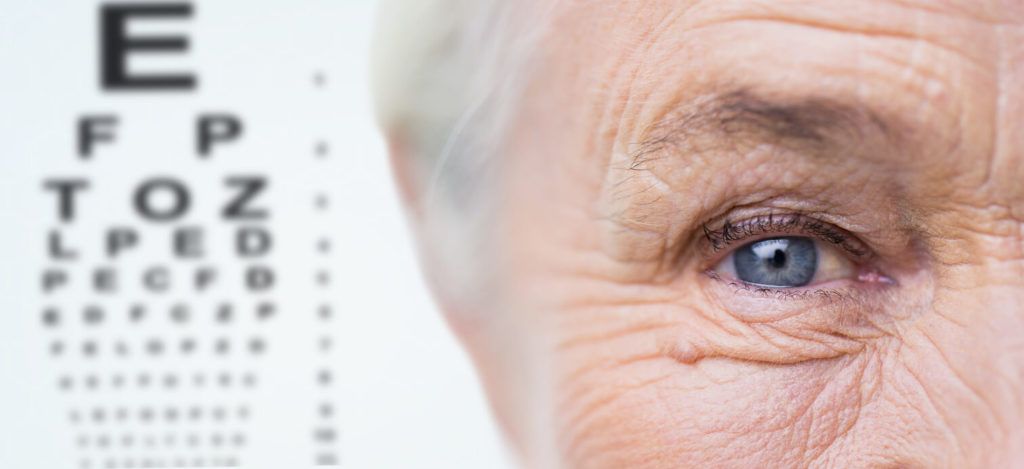
Peripheral vision refers to the ability to see objects around you without turning your head, “in the corner of the eye.” Loss of peripheral vision is when this ability goes away. It’s often referred to as tunnel vision.

What Causes Loss of Peripheral Vision?
The eye is a highly sensitive organ that is susceptible to damage to other parts of the head. Losing peripheral vision is often a side effect of more serious diseases, conditions, and head or eye injury.
• Glaucoma, the most common cause of blindness, is a leading cause of loss of peripheral vision as well. It causes a buildup of pressure and fluids that can lead to a stroke inside the eye and damage the optic nerve that interprets what the eye sees to the brain. Early detection for glaucoma during routine eye exams can reduce the likelihood of losing peripheral and overall vision.
People at risk for glaucoma include those with a family history of the disease or have diabetes. African Americans and Latinos are at higher risk as they age. People who have chronic eye inflammation and thinning corneas are also at risk. Glaucoma can be triggered by certain medications that increase eye pressure.
• Retinitis Pigmentosa (RP) is an inherited disorder that affects the retina, the part of the eye that senses light. Early signs of RP appear in the teens and include problems seeing at night and difficulty identifying certain colors; loss of peripheral vision comes later. Unfortunately, most people with RP become legally blind in early middle age.
• Brain injury from concussion or stroke can lead to peripheral vision loss, as well as head injuries that cause a detached retina.
• Loss of peripheral vision is an early sign of optic neuritis, an inflammation of the optic nerve that is fairly common in people with multiple sclerosis. Women are diagnosed with it more often than men.

Treating the Underlying Causes for Loss of Peripheral Vision
Peripheral vision loss can sometimes be restored by addressing the underlying causes but most often treatment controls it or at least slows down its progression.
• People with diabetes and glaucoma should be careful to adhere to their treatment and medications. They specifically help avoid or minimize any vision loss by reducing pressure on the eyes.
• Peripheral vision loss caused by a detached retina can often be restored with surgery. In fact, the outcomes are better for restoring peripheral vision than normal vision.
• Research on new steroid treatment for optic neuritis shows that combining IV and oral treatment restores lost vision in some patients and delays the progress of MS.
• People who wear glasses and have already had some loss in peripheral vision can get some of the field of view expanded with a prism lens. The Glaucoma Research Foundation is supporting research on Fresnel lenses that combine flat surfaces with different angles that direct light into areas of the retina that continue to function.
The Schepens Eye Research Institute in Boston is working on reducing collisions from 45° angles, the most challenging for people with loss of peripheral vision. They are developing mirrored lenses that use a periscope-like device to broaden the field of vision; ideally, these lenses would clip on over existing glasses.
Finally, preventing eye and head injuries goes a long way to protect against any vision loss. People who have already been diagnosed with eye diseases like glaucoma and RP should avoid activities that put pressure on the eye like diving and certain yoga poses.
Wearing protective eye gear or helmets when playing certain sports — racquet sports, cycling, skateboarding — adds protection against eye and head injury that can lead to vision loss.
Get more informed about eye health at our Diamond Vision website.
When was your last eye exam? Contact us for an appointment or visit our Manhattan clinic.
Contact Us
If you have more questions about LASIK procedures, get in touch with us.
Related Blogs

Who Should Not Have Laser Eye Surgery
Laser eye surgery, commonly known as LASIK (Laser-Assisted In Situ Keratomileusis), has revolutionized the world of vision correction. It’s a procedure that has enabled millions

LASIK eye surgery: What is LASIK and how does it work?
What Is LASIK? Experts categorize LASIK as a refractive eye surgery in which lasers are used to correct vision problems. LASIK corrects several refractive errors,

Everything You Need To Know About The Lipiflow Treatment
LipiFlow is often referred to as a ground-breaking technology that is able to treat dry eye issues caused by meibomian gland dysfunction, or MGD. Experts
